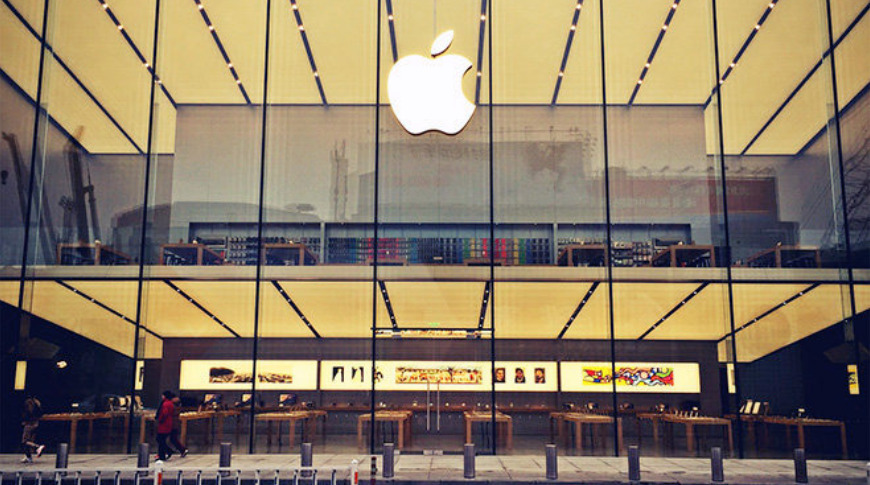A coalition of more than 150 activist groups have penned a letter to Apple urging it to address human rights concerns and to stop "suppressing" criticisms of its current actions.
The group alleges that Apple has failed to adopt the human rights policies that it announced earlier in 2020, and has actively taken steps to suppress human rights critics.
"We are writing in response to Apple's continued failure to protect freedom of information and expression, despite a new policy affirming its commitment to human right," the groups wrote in the letter.
In a news release, the organizations claim that Apple shot down a shareholder proposal raising concerns about human rights across its operations.
"By blocking the shareholder vote, Apple is trying to silence us," said Pema Doma, a member of Students for a Free Tibet. "The company wants to brush Chinese, Uyghur, Tibetan and Hongkonger human rights under the carpet, and continues to bow to the Chinese Communist Party's censorship demands."
Apple's human rights policies have been in the spotlight since reports alleged that the company was benefitting from the forced labor of China's Uighur Muslim minority.
Apple said in July that it found no evidence of human rights violations in a probe of its supply chain. But in December, it cut ties with O-Film, one of the firms accused of using forced labor.
The Cupertino tech giant is said to be lobbying against a bill that would prevent the import of goods into the U.S. unless companies could guarantee they weren't produced with forced labor. Some of its proposed changes include keeping some supply chain information from the public and extending compliance deadlines.
Several sources within Apple also told The Information that the company has been complicit in allowing labor violations to occur in its supply chain.
But the activist coalition's concerns extend beyond allegations of forced labor.
The letter also scrutinizes Apple's decision to pull virtual private networks (VPNs) from the Chinese App Store at the request of the Chinese Communist Party.
It also claims that Apple has been hindering the Hong Kong democracy movement. While other tech giants said they would not comply with Chinese authority data requests, Apple only said it would evaluate the law that would require them to do so.
The coalition of activist groups, which includes organizations represent Tibetan, Uyghur, and Hongkonger people, demands that Apple take "concrete steps towards a positive future."
"Apple must commit to the implementation of fundamental changes to help ensure that the freedoms and safety of Apple users everywhere— including in Tibet, East Turkistan, Southern Mongolia, China, Hong Kong, and Taiwan— are upheld," the groups wrote.
 Mike Peterson
Mike Peterson







-m.jpg)






 Wesley Hilliard
Wesley Hilliard
 Stephen Silver
Stephen Silver
 William Gallagher
William Gallagher
 Charles Martin
Charles Martin
 Marko Zivkovic
Marko Zivkovic
 Andrew Orr
Andrew Orr
 Amber Neely
Amber Neely










17 Comments
I agree Apple should attempt to manufacture, sell and profit in less compromised regions than China, but they’re in too deep now.
You'd think Apple was the only company getting stuff manufactured in China.
I agree Apple needs to do all it can but let’s take a look at this;
Yes because in July they hadn’t found any evidence. But they kept looking and when it came to light they acted. It’s called being responsible.
No they are keeping the meeting on topic. These things NEVER pass so there was no point.
And what were they supposed to do? Refuse, and have the PRC shut them down? That would have accomplished nothing. When you do business in a country, you have to abide by the laws of that country. It would be great if Apple weren’t in China, but that’s not possible right now.
The problem is the word GUARANTEE. It has a fixed legal meaning that Apple can’t meet. Hell, I can’t guarantee that the sandwich I bought at the place on the corner wasn’t made with forced labor. Apple can only monitor the vendors they deal with, but vendors of vendors, of suppliers, they simply can’t.
And just how are they going to do that? they aren’t in control of these areas. They make no policy toward these groups. Literally they cannot move a trashcan without the PRC’s approval. Sure they could get all SJW about it, but that would accomplish nothing and get them kicked out of the country.
I sympathise, even agree to a point with these groups, but they’re barking up the wrong tree.